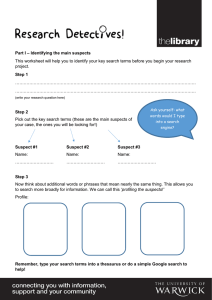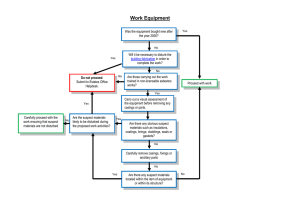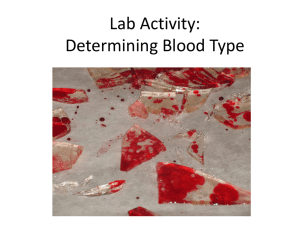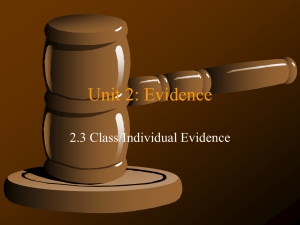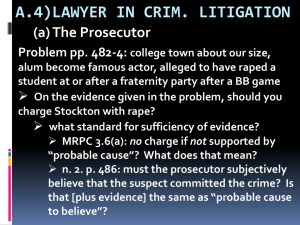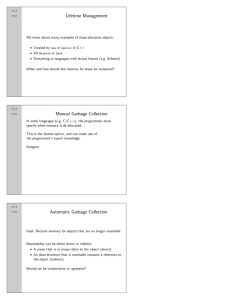What is the value of physical evidence?
advertisement
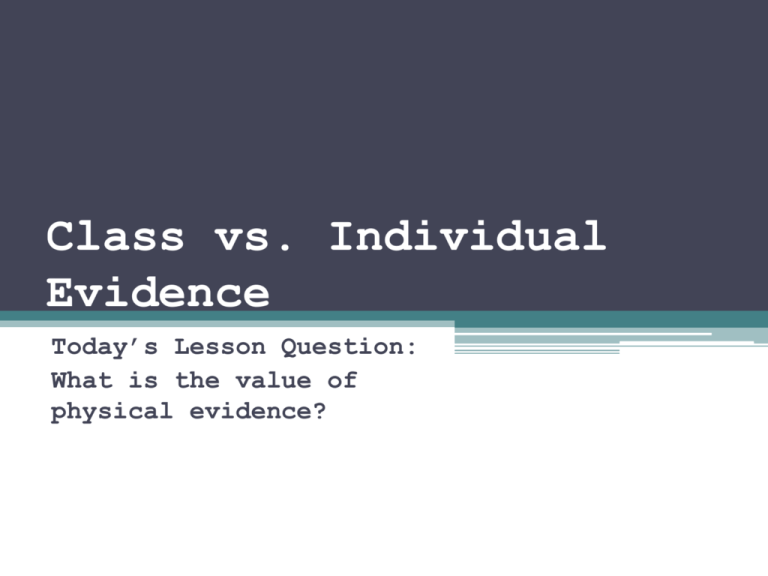
Class vs. Individual Evidence Today’s Lesson Question: What is the value of physical evidence? Today’s Objectives Students will be able to: 1) distinguish between individual and class evidence. 2) determine the significance of class evidence. Consider THIS! Websites like amazon.com make recommendations about things you based on your previous purchases. • How much can someone really tell about your personality based on the things you purchase? • What information can be culled from your garbage? “Garbage-ology” Activity • Each bag is partially filled with an assortment of (non-organic) waste: notes, bills, magazines, newspapers, pictures, etc. • Work in groups to analyze the contents of garbage bags • Complete the “Garbage-ology” worksheet. What Have We Learned? Physical evidence • Is part of "holy trinity" for solving crimes -- physical evidence, witnesses,& confessions. • Without one of the first two, there is little chance of even finding a suspect. • In homicide and sexual assault cases, physical evidence is the number one determinant of guilt or innocence. • is also the number one provider of extraordinary clearances, where police can link different offenses at different times and places with the same offender. Class vs. Individual Evidence • Individual Evidence ▫ The best evidence is anything that can be linked to a unique, single, specific source. ▫ Examples are fingerprints, handwriting, DNA patterns, and sometimes physical matches, such as a piece of broken glass that exactly fits to its mate (like a jigsaw puzzle piece). Class vs. Individual Evidence • Class Evidence ▫ Most evidence has characteristics common to a group of similar objects, not to one single object. ▫ A way to increase the probative value of class evidence is to find as many different types of objects as possible to link the suspect to the crime or the victim. Can This Evidence Be Individualized? Activity • There are 10 stations set up around the classroom. At each station there are one or more objects. Working in teams of two, examine the object(s) at each station. • Complete the worksheet while you examine each set of evidence.



